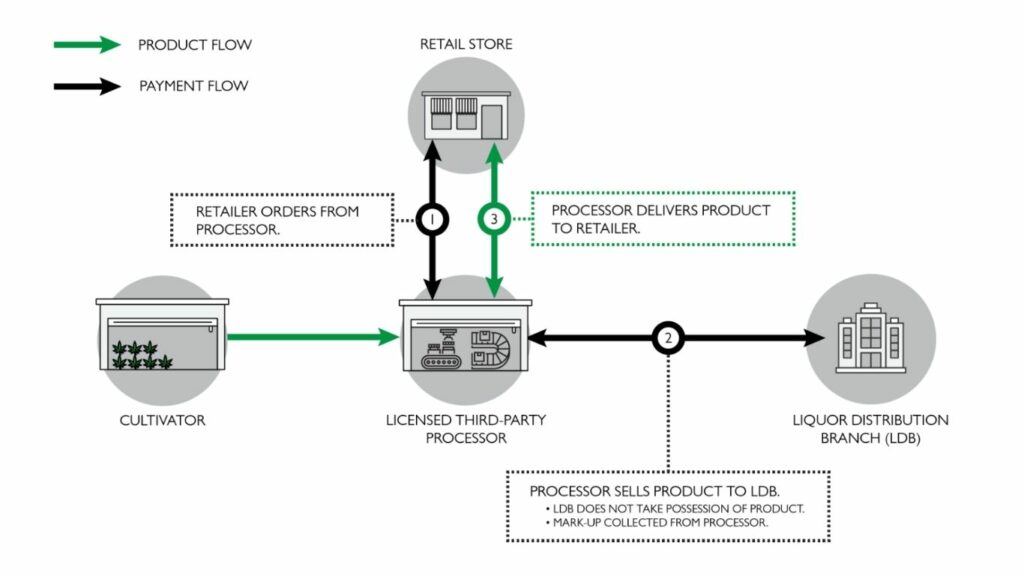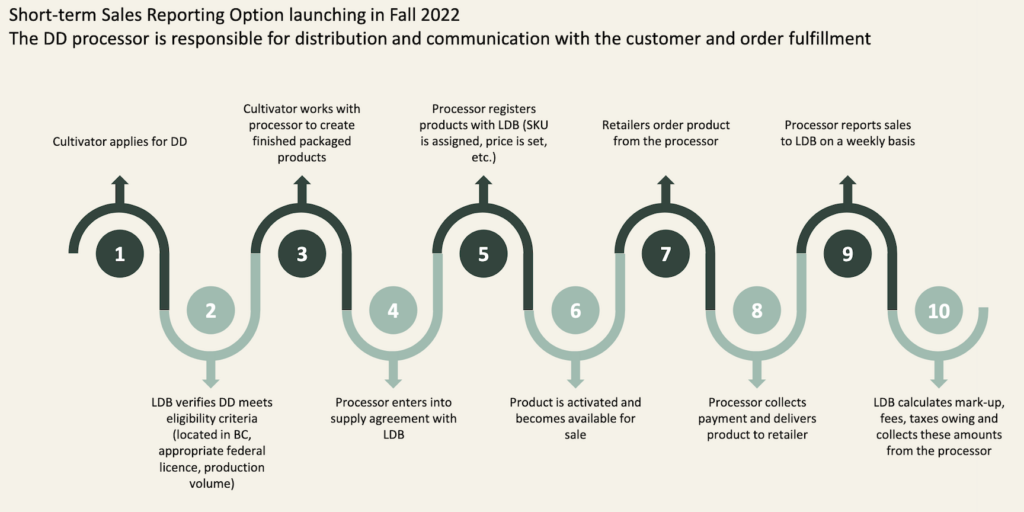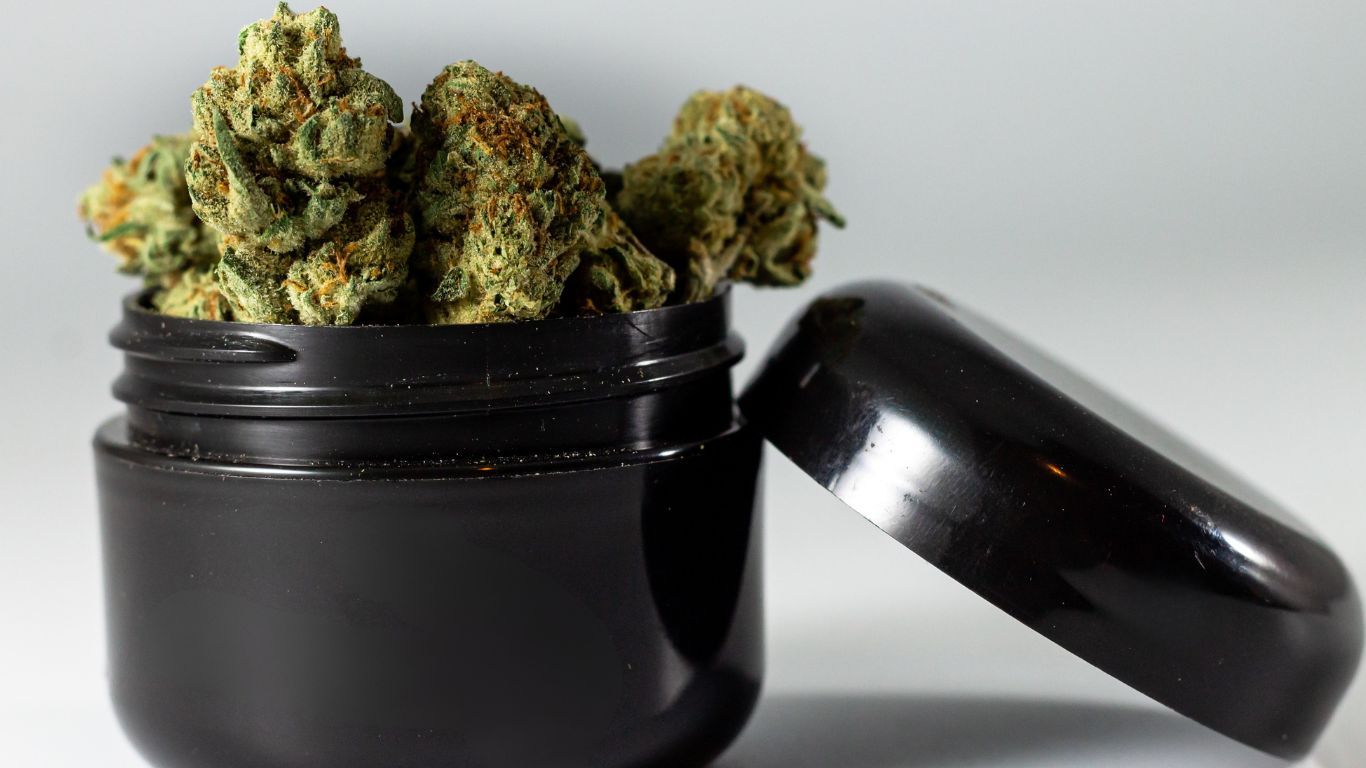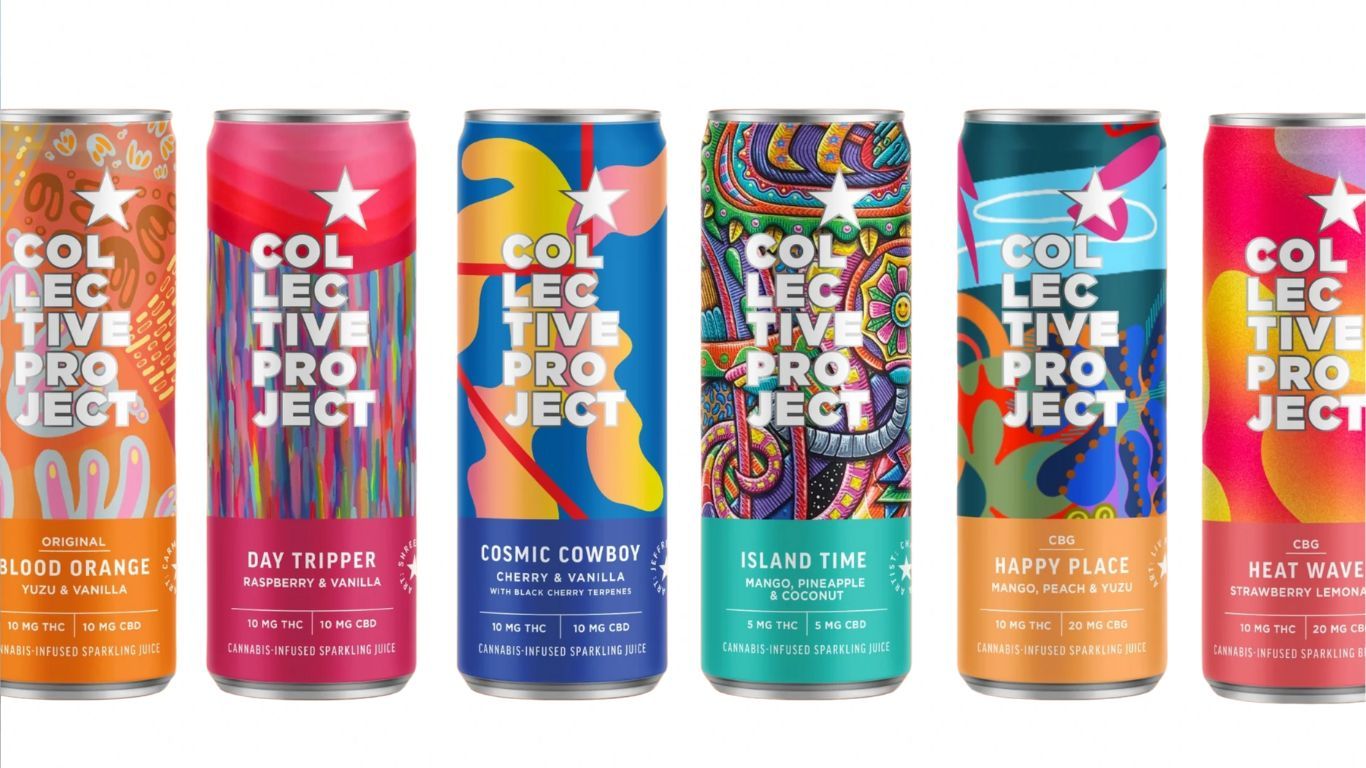
The BC government is finalizing their plans for a direct-delivery program for cannabis nurseries and small scale cultivators, with a target date for implementation of fall 2022.
Following consultation with industry stakeholders, the provincial government began informing licence holders of their plans this week. The plans include allowing nurseries and “small-scale cultivators” that produce no more than 3,000 kilograms of cannabis annually to have their finished products delivered directly to retailers, bypassing the provincial distributor—the BC LDB.
As per federal regulations, any cannabis products other than plants or seeds must still be processed and packaged by a licence holder with the appropriate sales licences before being sold into the provincial system. BC will be removing the requirement to then sell those products to the provincial distributor (BC LDB) before making their way to retailers.
Instead, licensed processors will receive orders directly from retailers and will be responsible for order fulfillment, distribution to retailers, returns, reporting sales to LDB, and customer communication.
Processors will still have to first enter into a supply agreement with the BC LDB, and will need to register and price their products before they become available for retailers to place orders. Although products will not be physically delivered to or distributed by the LDB, the province will still collect their 15% markup on all products.
The province initially announced their intentions for future direct delivery and farmgate sales in 2020, and began stakeholder engagement earlier this year, with the intention of implementing both by 2022.
In a memo to stakeholders, the LDB says that in order to support their fall 2022 timeline, they will be implementing a short-term order and fulfillment process “with the intent to transition to a centralized ordering and reporting model in the future.” The LDB says the logistics around order fulfillment will be shared at a later date, once finalized.
The province has also been working on their proposed cannabis farmgate sales model, engaging with licence holders and other stakeholders, although no specific plan has yet to be released.
Currently, the BC Liquor and Cannabis Regulation Branch (LCRB) is considering authorizing farmgate sales through a new Production Retail Store (PRS) licence which would allow micro cultivators, standard cultivators, and nursery licence holders to sell their products at their production facilities.
The proposed plan currently excludes stand-alone processors, micro or standard, from participating, although there are several stand-alone processors in BC that currently serve many micro and other small-scale cultivators in the province. Those with both a cultivation and processing licence can still participate. The province has yet to provide details on what the requirements for a PRS farmgate licence would look like, if they would mirror current provincial rules for cannabis retailers, or if a new, less restrictive licensing model would be considered that would reflect the smaller budget of many micros and other small scale growers.
The BC government’s engagement with stakeholders this year has looked at several possibilities for their farmgate sales model, including potentially only allowing micro cultivators, only allowing cultivators to sell their own products, and limiting the total number of farmgate licences.
The province has also been asking stakeholders if they would be interested in holding events on the site of their production facility and farmgate licence, as well as allowing on-site consumption and product sampling.
Cannabis farmgate in other provinces
Ontario was the first province to implement a farmgate earlier this year, with two producers currently operating on-site retail locations, and a third expected to open soon. In August, New Brunswick became the second province to announce a cannabis farmgate program, allowing for “on-site selling of in-house products for local LPs, nurseries, and micros.”
Lara Wood, the VP of Operations at Cannabis NB, told StratCann that they are ready to begin implementing licenses as soon as producers are ready.
“We have a very simple application process and a contract we’ll sign with them, and that contract is ready to go,” explains Wood. “The timeline really depends on our partners, the conversations we have with them, and what kind of timeline they need to set up in their location. We don’t have a long application process so it could be as soon as a month or two from now, depending on how fast our partners want to move.”













